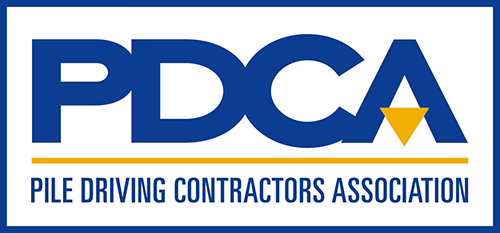By: Johanna Fabrizio Parker, Corey Clay, Adam Primm, Partners at Benesch Friedlander Coplan & Aronoff LLP
According to the Centers for Disease Control and Prevention (CDC) and the Occupational Safety and Health Association (OSHA), fully vaccinated employees no longer need to wear a mask or physically distance in any non-healthcare setting, except where required by federal, state, local, tribal, or territorial laws, rules, and regulations, including local business and workplace guidance. Prevention measures--wearing a mask that covers the nose and mouth, staying six feet apart, avoiding crowds and poorly ventilated indoor spaces, and sanitizing as often as possible--are still recommended for unvaccinated people. But what does this mean for the workplace?
The CDC's guidance does not have authority over state or local governing bodies that may impose other health rules, so different local and state rules still can apply. Many states, however, are following the CDC's lead. For example, Ohio issued a new public health order paralleling the CDC guidance, allowing fully vaccinated people to perform most activities without a facial covering and without social distancing. But this order is only in effect until June 2, after which it will be rescinded (and this trend is seen across states and localities). With the new CDC guidance, employers have a range of options--provided that no overriding state or local order imposes different rules:
- Option 1: Follow CDC guidance as a workplace rule and use the honor system. Employers could choose to follow the CDC guidance based on an honor systemthat is, tell employees that they no longer need masks or face coverings if they have been fully-vaccinated and leave it there and not require employees to provide proof of vaccination. As we have seen with various national stores that have implemented such a policy with their customers, wearing a mask becomes a matter of individual choice and responsibility. This can be an attractive option--both because of COVID fatigue and difficulty in finding employees--but it may simply defer enforcement issues. Where customers in a store are generally not going to know the vaccination status of fellow shoppers, employees who work together and socialize on a daily basis are more likely to know from everyday conversation who is and is not vaccinated. As such, employers may be forced to adjudicate and/or mediate interpersonal disputes when an employee reports that a colleague is not complying with workplace rules regarding facial coverings and social distancing.
-
Option 2: Implement CDC guidance as a workplace rule and require proof of vaccination for those employees who no longer wear facial coverings. Employers could create a policy that follows the CDC guidance but requires proof of vaccination from employees who wish to no longer wear a mask and comply with social distancing restrictions. If an employer chooses to follow this approach, it should take steps to ensure that the only information collected from employees is simple confirmation of the vaccine and no other information. The EEOC's position is that merely asking an employee to show proof of receipt of a COVID-19 vaccination is not a disability related inquiry. However, per the EEOC, "subsequent employer questions, such as asking why an individual did not receive a vaccination, may elicit information about a disability" that can raise issues under the ADA and employers should also advise employees to avoid disclosing medical information in response to any such inquiry. (See December 16, 2020 EEOC Guidance, at FAQ K.3.)
How can an employer limit the information it retains from employees relating to the COVID-19 vaccination? An employer might create a "no-mask" list of employees who provide proof. Employees would be added to this list once management sees proof of the vaccine - a copy of the vaccine card itself would then not need to be maintained. (If an employer did retain copies of the cards, we would recommend treating them as medical records.) Of course, requiring proof puts employers in a position to enforce the policy, thereby adding administrative burden. But as previously noted, the "honor system" approach raises its own issues. And, some employers may conclude that requiring confirmation of vaccination will make vaccinated employees more comfortable to return to the office.
-
Option 3: Require all in-office employees to be vaccinated. Employers could require employees who work in the office to be vaccinated, provided that employees have the option to work effectively elsewhere. If the longer-term plan is to have everyone return, this approach may create obstacles in reaching that goal.
-
Option 4: Require vaccinations for all employees. Employers could require vaccines generally and eliminate, or largely eliminate, the issue. Employers still need to address the potential disability or religious accommodation issues, as previously discussed in Can Employers Mandate the COVID-19 Vaccine?. And, given the tight labor market, this option may not be practically viable.
-
Option 5: Don't require any masks/social distancing if state or local rules are less restrictive than CDC guidance. Employers may consider following state rules that are less stringent than the CDC guidance. (For example, as earlier noted, on June 2 most Ohio COVID-19 health orders, except those relating to congregate living centers and nursing homes, will be rescinded.) However, in the absence of further guidance/policy announcements from OSHA, there may be risk with such an approach given OSHA's current endorsement of the CDC approach.
-
Option 6: Employers could also require masking and social distancing for all employees regardless of vaccinations. But, and for Ohio especially after June 2, this approach also may have practical effects. On one hand, it could lead to unhappy employees and, lack of interest in any open positions if the masks remain mandatory for everyone. On the other hand, requiring masks for everyone--regardless of vaccination--avoids creating tiered hierarchy among employees that could similarly lead to unhappy employees, particularly when employees are largely permitted to remove masks if distanced from others while working.
Regardless of the choice, employers need to make sure there is no retaliation against employees. For example, in Option 2, employers should inform employees that they don't have to share their vaccination status, and there will be no retaliation regardless of their choice. Similarly, in Option 4, employers need to assure any employee requesting an accommodation that there will be no retaliation related to that request.
Finally, employers should watch for the less obvious potential discriminatory/retaliatory issues. Supervisors and managers must be instructed that they cannot treat employees differently due to their vaccinated or unvaccinated status. Access to projects and guidance must be provided to all individuals -- whether they wear a mask or not.
If you have any questions, we encourage you to reach out to your Benesch contact or one of the attorneys below to discuss.
Johanna Fabrizio Parker at jparker@beneschlaw.com or 216.363.4585.
Corey Clay at cclay@beneschlaw.com or 216.363.4158.
Adam Primm at aprimm@beneschlaw.com or 216.363.4451.
***
Please note that this information is current as of the date of this client bulletin (May 20, 2021), based on the available data. However, because COVID-19's status and updates related to the same are ongoing, we recommend real-time review of guidance distributed by CDC and local officials.






